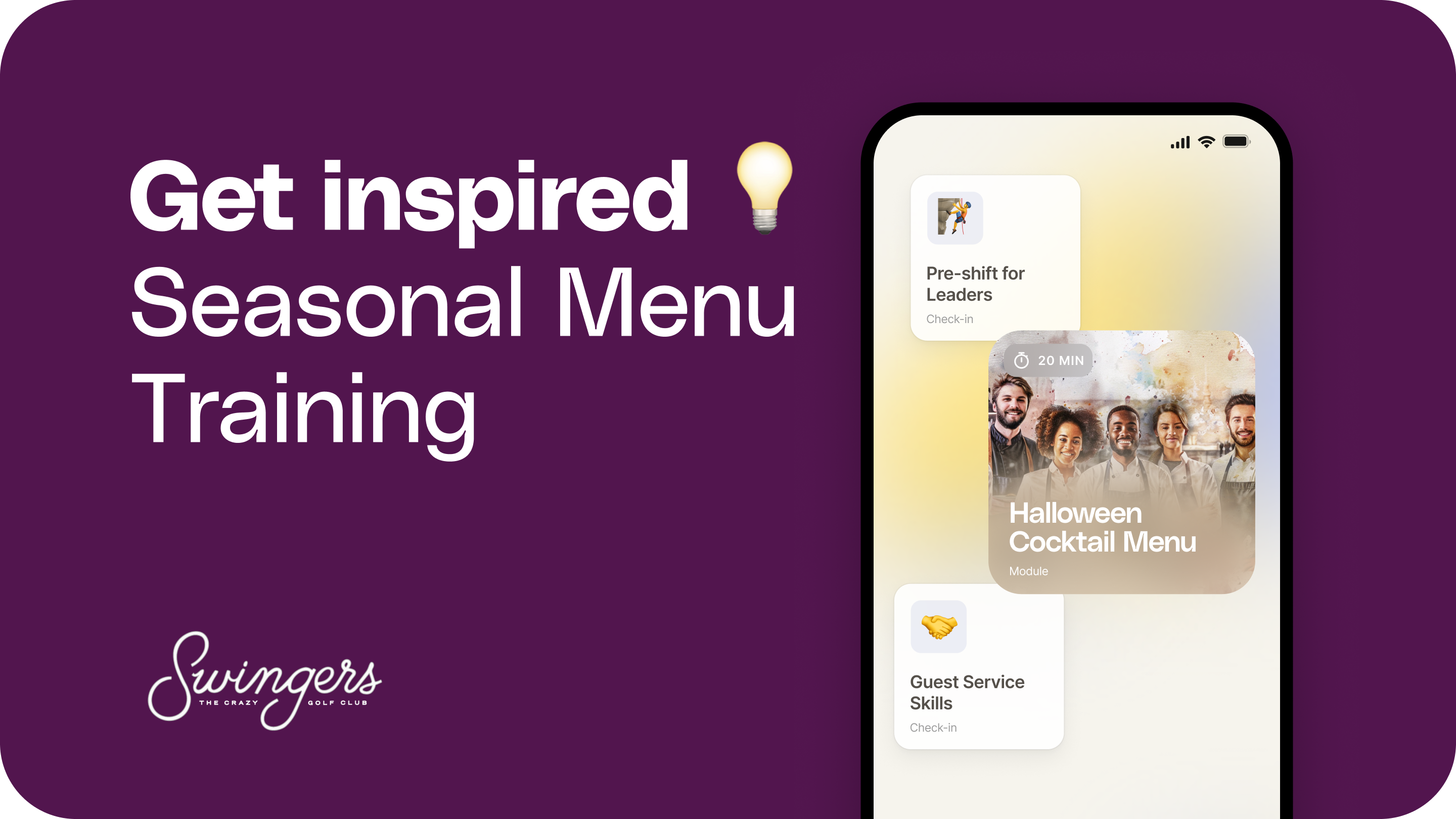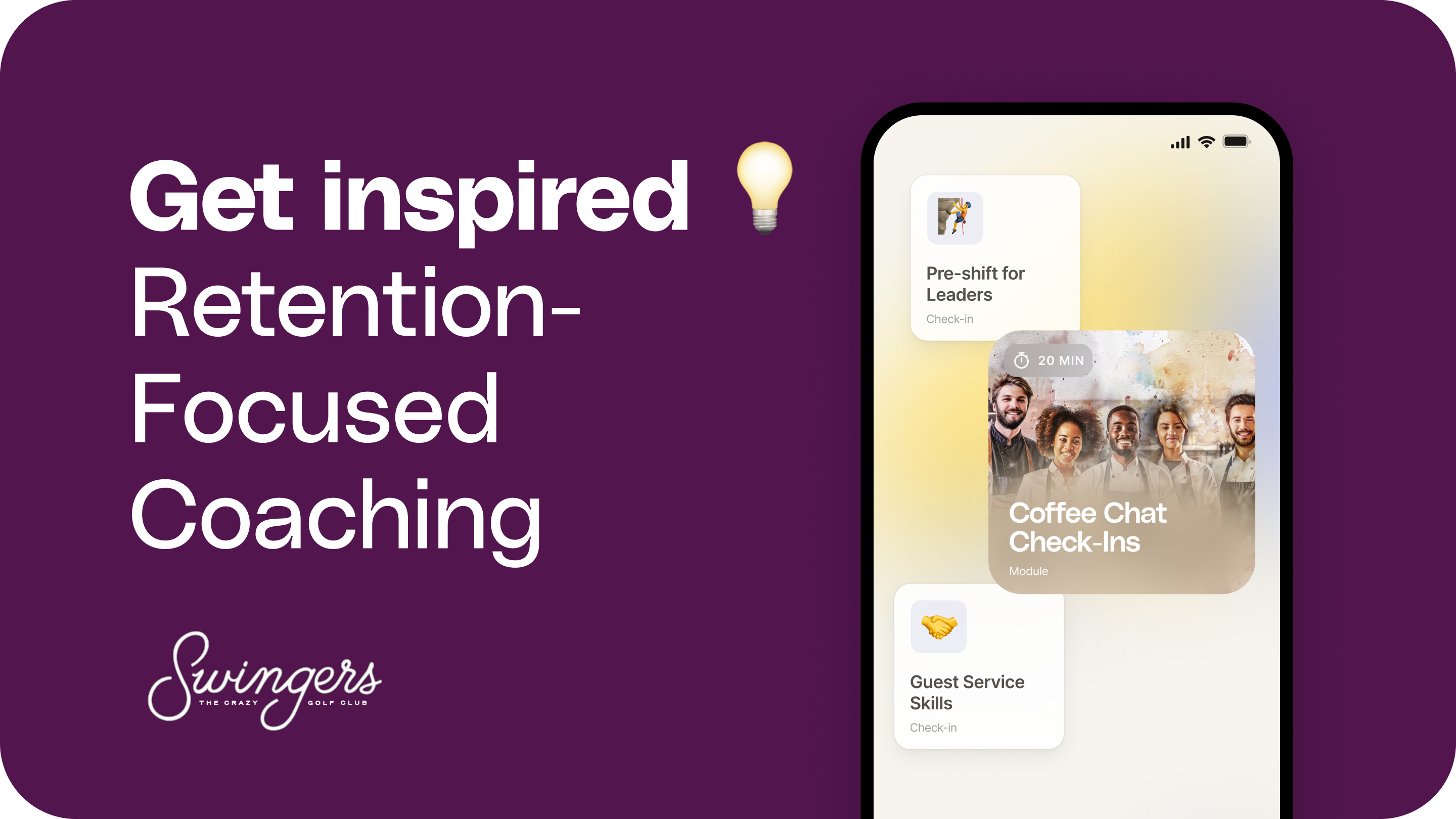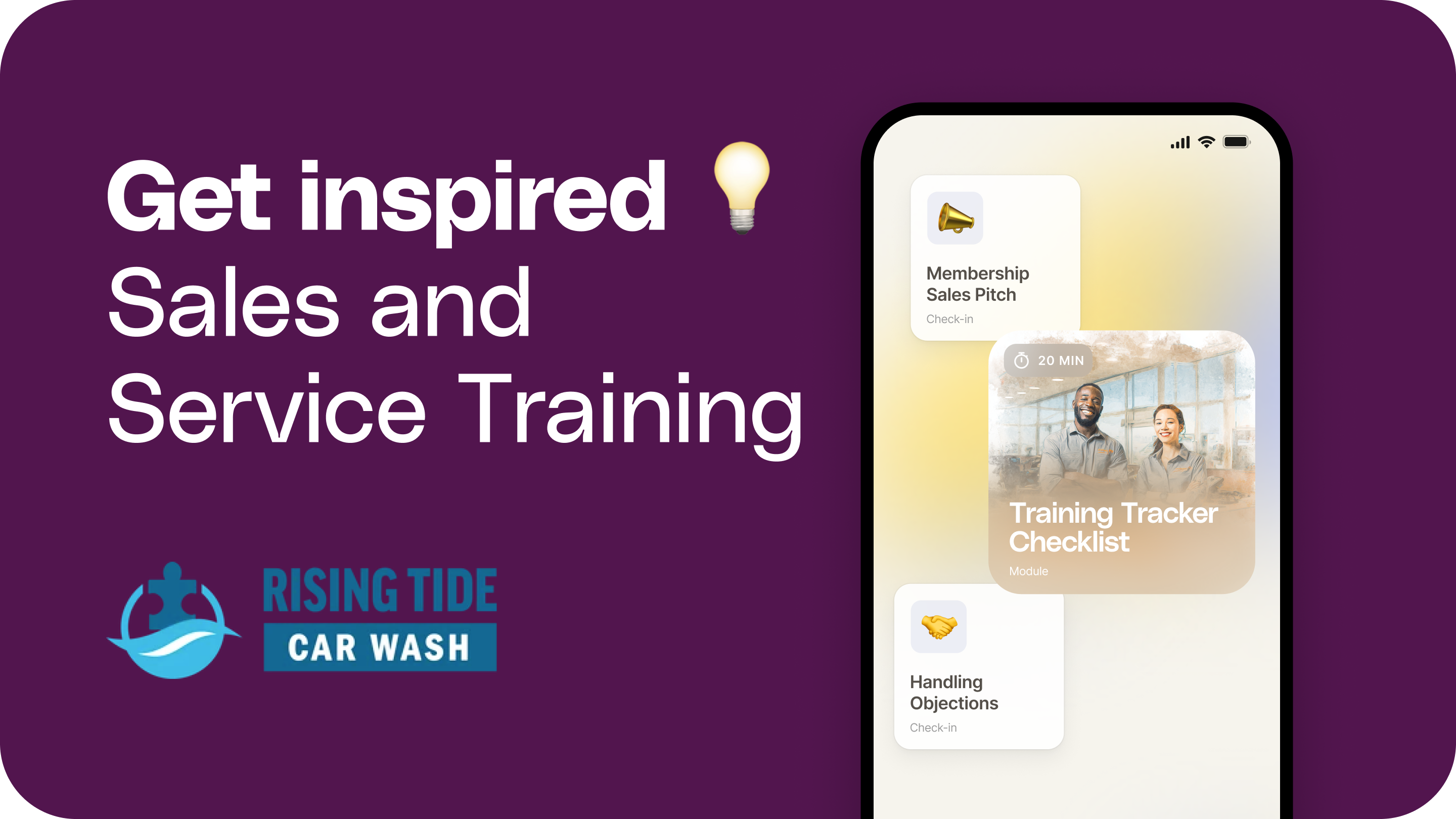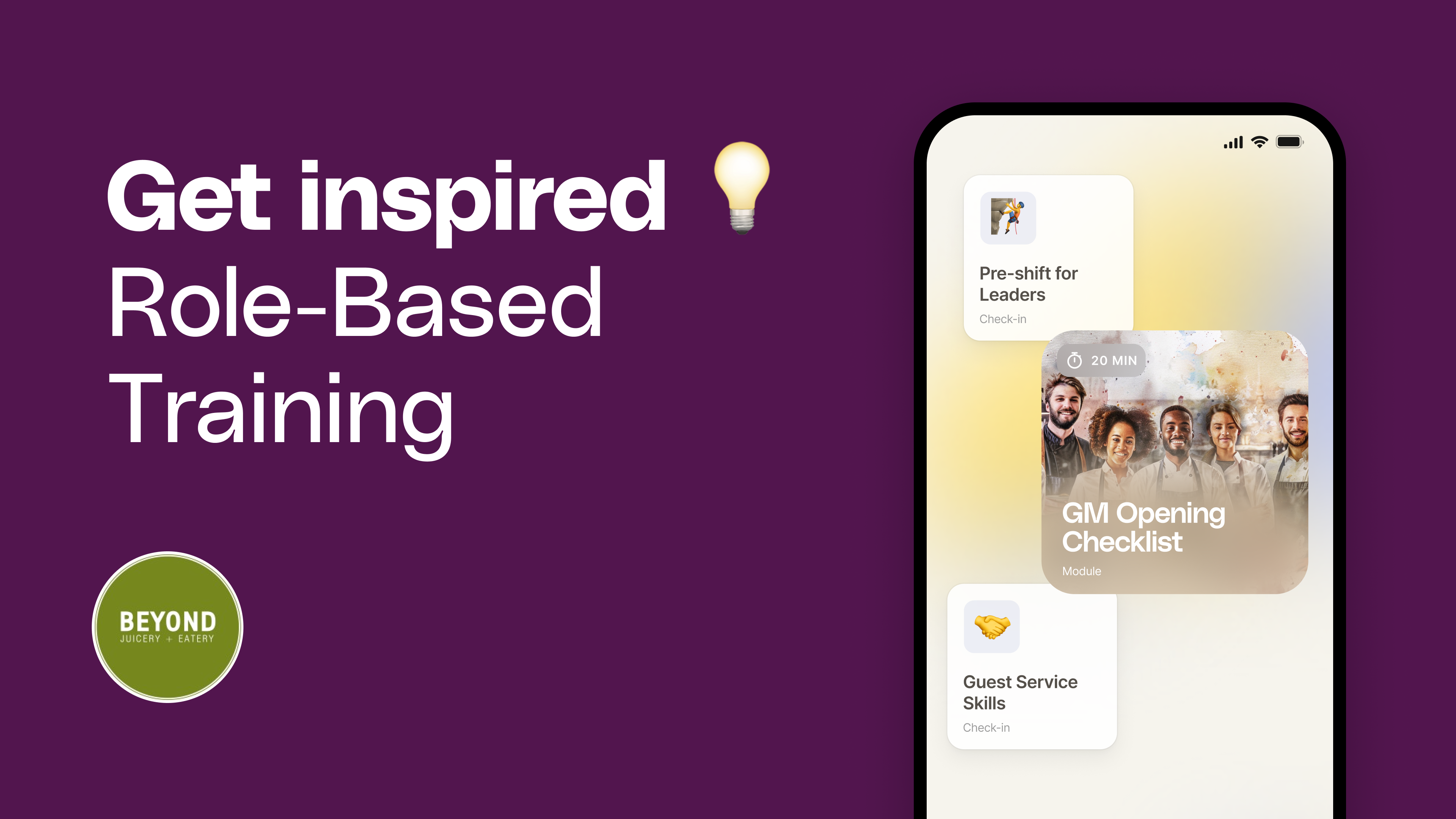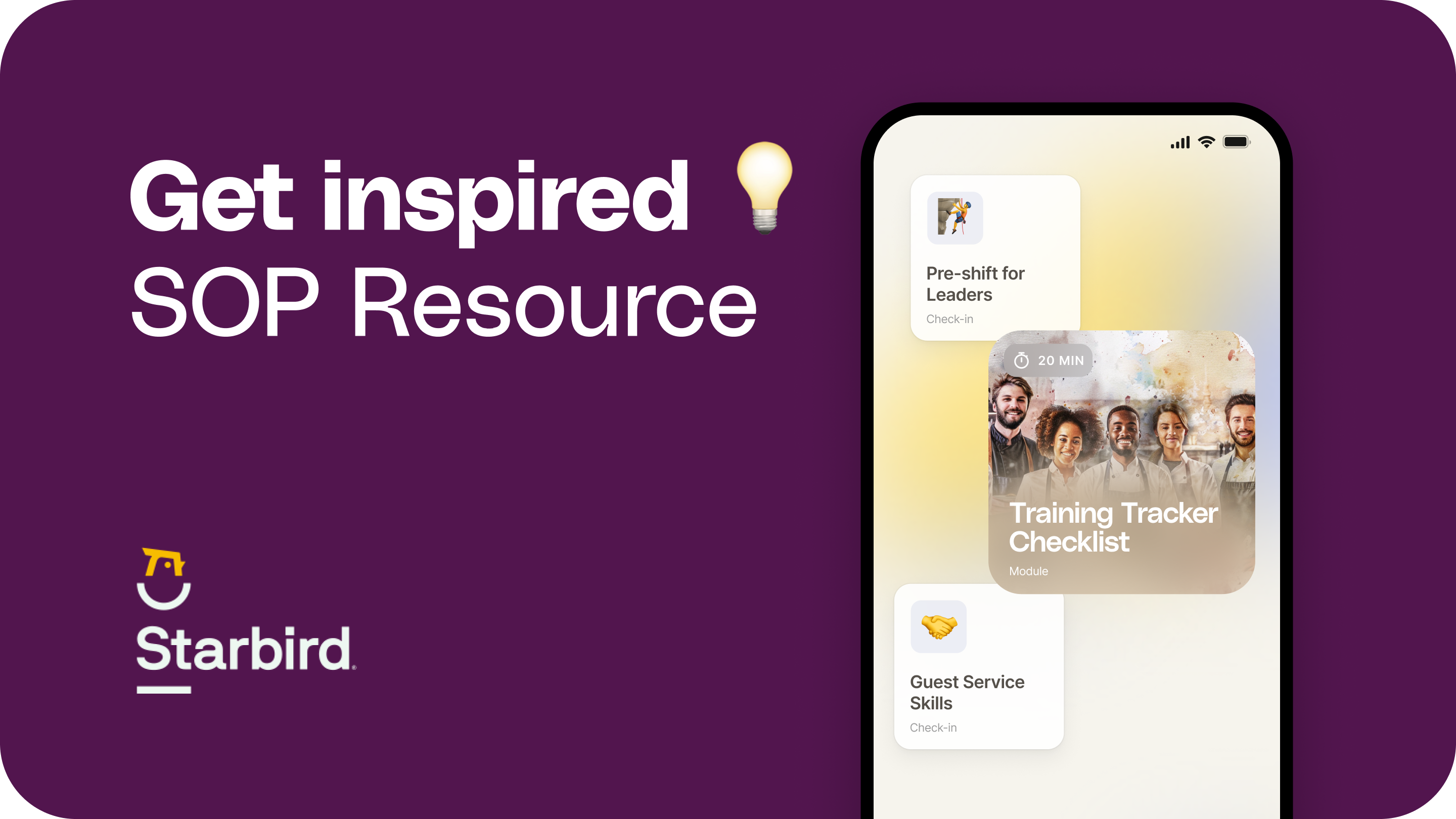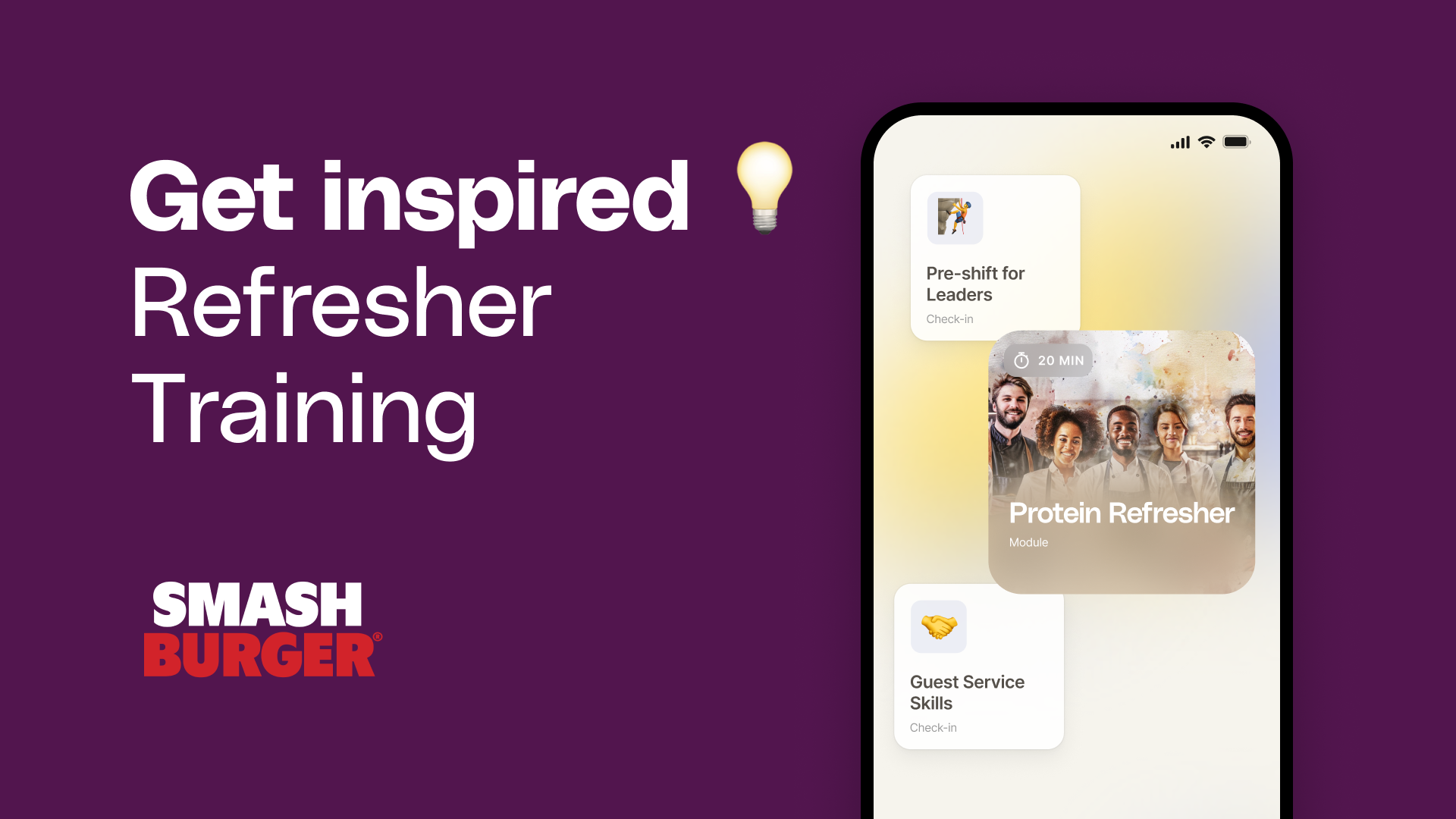How The Feinstein Group Tackles Role-Based Training
A real training format that ensures consistent hospitality standards across multiple restaurant concepts.
Role-Based Training • Hospitality Format
The Problem: Multi-Concept Groups Need Consistent Standards
At the Feinstein Group, Zack and Christina Feinstein believe in creating one-of-a-kind dining experience across their three concepts: The Black Pearl, The Living Room, and Sonder Social Club. As a full-service multi-concept hospitality group with multiple concepts across the Tampa Bay area, team members needed to be trained to the Feinstein Group's standards regardless of the restaurant they'll be working at. With employee groups ranging from 15-70 per location, this means a host or hostess at The Feinstein Group receives the same baseline so that they can work at any of the restaurants.

The Host/Hostess Training Module: A Closer Look
The Feinstein Group's Host/Hostess training is a perfect example of role-based cross training.
Think of modules as a blank canvas for developing training. Modules are typically tied to a use case or training objective—in this case, The Feinstein Group assigns this module to team members that are going to be working the host station at any one of their concepts. This module also is designed to complement their host training workbook that they'll reference in person during their shifts.
Long-Form Training Example
This module showcases what long-form training looks like in Opus, consisting of approximately 20 courses and check-ins designed to thoroughly prepare hosts for their role across multiple concepts.
Comprehensive Subject Coverage
The training covers a variety of subject areas from tech to service expectations. Balance of Soft & Technical Skills: This module showcases a good balance of how you can train on soft skills like customer service, as well as how to properly use the POS (Toast) in one.
Strategic Check-in Integration
Check-ins allows for applying consistent service standards, while letting the in-person interaction adjust for concept specific information during hands-on training. For lean training teams managing multiple concepts, this is a great balance to start out with, and then can build in concept specific detailed training when there's time. With lots of check-ins integrated throughout the module, trainees alternate between learning content and practical applications. Focused Sections & Check-ins: Bundling related topics into focused sections can help prevent "topic burnout" overtime. Plus, each module section begins with a course that sets context for what's next and ends with a check-in so that trainees can connect with their manager.
Multi-Concept Flexibility
Topic Mastery and Flexibility: Even at a multi-concept hospitality group, not every piece of training has to be concept-specific so that courses can be used across a number of modules. This allows hosts to work at any of the three restaurant concepts while maintaining consistent standards.
Structuring your training in Opus is key to getting the most out of every module. Tie learning objectives to individual courses so that one course can be used across a variety of modules. Learn more about how to build modules in Opus.
The Results: Consistent Standards Across All Concepts
With a 96% course accuracy rate and 4.8 trainee course feedback score, The Feinstein Group's role-based training demonstrates exceptional effectiveness.
Topic Mastery and Flexibility: Even at a multi-concept hospitality group, not every piece of training has to be concept-specific so that courses can be used across a number of modules.
Balance of Soft & Technical Skills: This module showcases a good balance of how you can train on soft skills like customer service, as well as how to properly use the POS (Toast) in one.
Focused Sections & Check-ins: Bundling related topics into focused sections can help prevent "topic burnout" overtime. Plus, each module section begins with a course that sets context for what's next and ends with a check-in so that trainees can connect with their manager.
Key Benefits:
- Hosts can work at any of the three restaurant concepts
- Prevents training burnout with focused sections and frequent check-ins
- Balances soft skills and technical POS training effectively
- Achieves 4.8/5 trainee satisfaction score
- Scales efficiently across 15-70 employees per location
Tour: What Makes This Great Training
Watch this demo for a walk through of what makes this module a great example of training in Opus.
See It For Yourself
Scan the QR code below to put yourself in the shoes of an host-in-training at The Feinstein Group. Curious about more training examples? View the full collection here.

Want More Training Ideas That Actually Work?
👉 How Planta Approaches Guest Service Training
👉 How Swinger's Promotes Marketing Partnerships & Events
👉 How &pizza Empowers Employees to Lead the Shift
Meet The Feinstein Group
The Feinstein Group, founded by Zach Feinstein, is a prominent restaurant and hospitality group known for its portfolio of upscale dining establishments and boutique hospitality services.
This group focuses on delivering exceptional culinary experiences and personalized service, setting high standards in the industry for quality and creativity.




